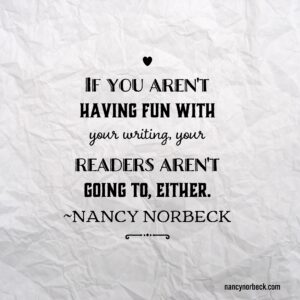Self-publishing powerhouse Hugh Howey recently posted a piece on his blog called, “So You Want to Be a Writer…” and shared his writing wisdom with the world. Most “writing advice” pieces are rife with opportunity for discussion, and this one’s no exception.
There’s some good stuff in Howey’s piece. He’s clearly no idiot, because he’s managed write highly acclaimed books and make a living at the writing game. Obviously, you can’t learn to write without writing and reading. That should go without saying. I don’t know how you engage in any creative pursuit without daydreaming; if that has to be suggested to you, I’m not sure how you got this far. Networking is not a bad idea, either. And learning to love failure, and what you can learn from failure, is incredibly valuable.
 But there’s a lot here that makes me want to break out in hives, especially as a writing coach. Howey thinks in a very linear fashion, and that’s fine for many people—but the creative process is not linear. Plotting everything out beforehand works for some people; for me and others like me, it’s the kiss of death. If I know how the story ends there’s no need for me to write it. Solving the mystery is what keeps me going. And characters tend to up and do unexpected things anyway, so being overly linear and not allowing for variations in your plan can cause frustration. Creativity flows in its own weird way and the more you can get comfortable with that, the better off you are.
But there’s a lot here that makes me want to break out in hives, especially as a writing coach. Howey thinks in a very linear fashion, and that’s fine for many people—but the creative process is not linear. Plotting everything out beforehand works for some people; for me and others like me, it’s the kiss of death. If I know how the story ends there’s no need for me to write it. Solving the mystery is what keeps me going. And characters tend to up and do unexpected things anyway, so being overly linear and not allowing for variations in your plan can cause frustration. Creativity flows in its own weird way and the more you can get comfortable with that, the better off you are.
Voice is great, but it bothers me that he presents it almost as if it alone is the key to success. The same is true for flow. Flow states are fantastic when they happen—but they alone do not good writing make. I think they work for him and he’s confusing causation with correlation, and as a result is assuming that this is the magic pill for everyone. If you get into a flow state and don’t know your way around the language or the craft of writing, you can still turn out complete garbage.
Howey also suggests posting your new work to a blog. I think you might want to think twice about that idea. It’s terrifying enough for some people to put themselves out there at all; just the idea of putting unfinished, unpolished work into the ether for all to see is exactly the kind of thing that stops people in their tracks. And that’s before we get to the potential legal/intellectual property issues. Save the blog for the good stuff, or for writing about the process. Blogging alone is also not likely to gain you “a fan.” You can write the greatest stuff in the world, but if you don’t promote it, no one will even know it’s there.
Howey disses MFA programs, too. Check out my “To MFA or Not to MFA?” post for my thoughts about that.
What really bothers me about this piece is that it’s exactly the sort of “advice” that stops fledgling writers (and artists in general) in their tracks—and it does it while promoting a sense of superiority that I find really off-putting and unnecessary. Artists are already up against the stigmas of society, fighting to be themselves in a world that tells them to be something else, and when they bump into this sort of right/wrong, “I’m a better writer than you” nonsense, it throws a lot of them off track—sometimes permanently. It makes my blood boil. We need more creativity, not less. What works for Hugh Howey doesn’t work for me and what works for me may not work for you or your next door neighbor or the guy in the next cubicle at work.
The creative process in general is fairly standard—most people run up against the same blocks and thought processes that get in their way, and specific tools can often solve those problems–but we all encounter it differently and bring our own unique experience and background to the party. Maybe my definition of success is one or two solid books I can be proud of. Maybe it’s writing one per year—maybe yours is one every three. There’s no cosmic yardstick that says that your goal is empirically better than mine, or vice versa, and I’m inherently suspicious of anyone who tries to say otherwise. (Or that working your butt off automatically means you’ll have a bestseller on your hands, which might be the single most dangerous implication of Howey’s piece. It can’t hurt, certainly, but it’s not a guarantee.)
More to the point, if you’re not enjoying writing—and Howey certainly doesn’t seem concerned with that part—then why on earth are you doing it? That’s not to say that it should be easy, but if you’re turning it into a chore, why bother? If you aren’t having fun, your readers aren’t going to, either.
